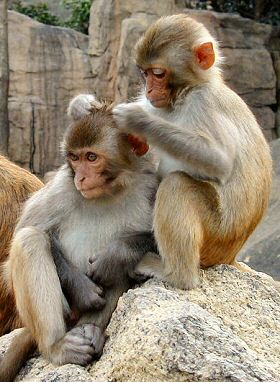
Duke neuroscientist Michael Platt says that administering the hormone through a nebulizer can make rhesus macaques pay more attention to each other and make altruistic choices that give another monkey a squirt of fruit juice, even when they don’t get one themselves.
In the experiment, two macaques were trained to select symbols from a screen that represented giving a rewarding squirt of juice to one’s self, giving juice to the neighbor, or not handing out any juice at all. In repeated trials, they were faced with a choice between just two of these options at a time: reward to self vs. no reward; reward to self vs. reward to other; and reward to other vs. no reward.
“The inhaled oxytocin enhanced ‘prosocial’ choices by the monkeys, perhaps by making them pay more attention to the other individual,” said Platt, who headed the study. “If that’s true, it’s really cool, because it suggests that oxytocin breaks down normal social barriers.”
Earlier research by Platt’s group had shown that macaques would rather give a reward to another monkey when the alternative is no reward for anyone, a concept they call “vicarious reinforcement.” Their data in this study show an apparent improvement in vicarious reinforcement about a half-hour after exposure to oxytocin. Interestingly, for the first half-hour, the monkey was more likely to reward itself.
Related:
Discuss this article in our forum
Could oxytocin levels identify high risk parents?
More of oxytocin’s effects revealed
Oxytocin impacts learning processes
Marriages fixed with oxytocin

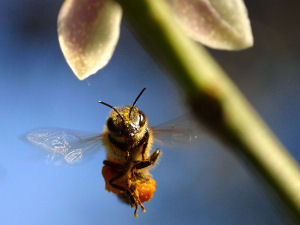
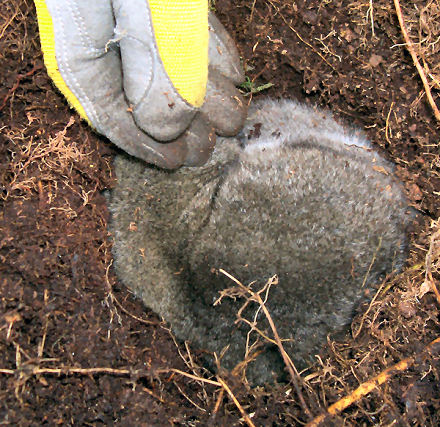
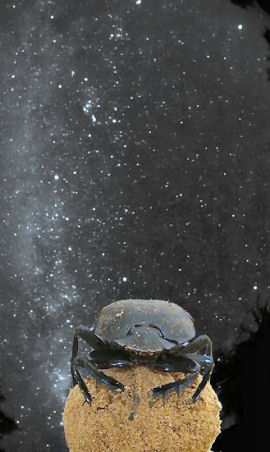
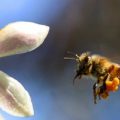
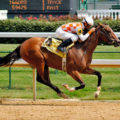





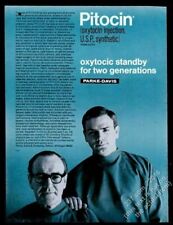

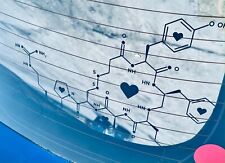
Comments are closed.